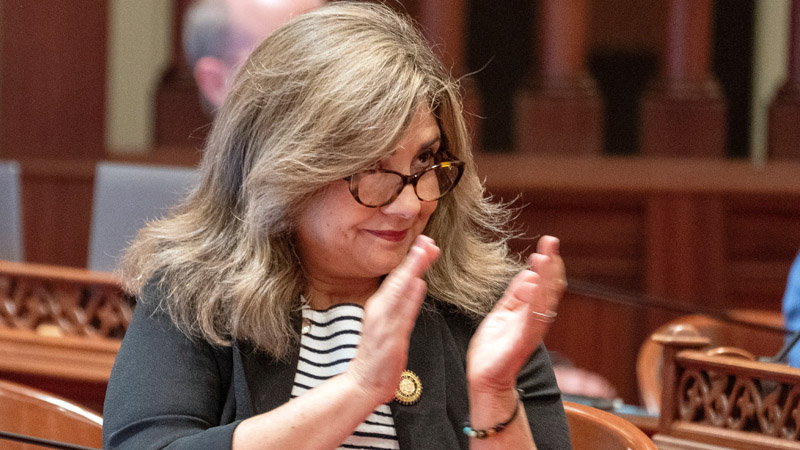A significant political shift is taking place in California as State Senator Marie Alvarado-Gil, the first Democrat in decades to win her district, has announced her decision to leave the Democratic Party and join the GOP. Alvarado-Gil recently revealed to The Sacramento Bee‘s editorial board that her decision was driven by what she described as the “last straw” in her growing disillusionment with her former party.
Alvarado-Gil, who was elected two years ago to represent a diverse collection of counties including Alpine, Amador, Calaveras, El Dorado, and several others, cited the recent controversy surrounding Proposition 47 as the breaking point. Proposition 47, passed by voters a decade ago, aimed to reduce penalties for certain property crimes.
However, a recent effort by Governor Gavin Newsom and other Democratic leaders to block reforms to the initiative pushed Alvarado-Gil to make her decision. “This wasn’t a discussion I took lightly, but there was a last straw,” Alvarado-Gil explained to the Bee. “For me, the last straw was the Proposition 47 shenanigans, the ‘poison pill’ amendments.”
The controversy arose when a law-and-order package, including bills sponsored by Alvarado-Gil, was loaded with amendments—referred to as “poison pills”—that would have effectively killed the bills if voters approved a Prop. 47 reform initiative in November. Alvarado-Gil viewed this move as a blatant attempt by her party to undermine necessary reforms and enforce strict party loyalty.
According to Marcos Bretón of The Sacramento Bee‘s editorial board, while such a party switch might be “notable” in other states, it is “highly unusual” in California, where party loyalty is often deeply ingrained. Alvarado-Gil also described the intense pressure exerted by Governor Newsom and other Democratic leaders to “fall in line” with the party’s stance. “I was vocal about it,” she said.
“So I sat with that for a little while. The consideration of separating myself from the majority party, their tactics, and misalignment of our values has been percolating for some time.” Her decision to join the Republican Party marks a significant departure from her previous political alignment and underscores the deepening divisions within California’s political landscape. Alvarado-Gil’s move signals her discontent with the direction of the Democratic Party in the state, particularly regarding issues of criminal justice reform and legislative integrity.
As Alvarado-Gil transitions to the GOP, her decision will likely reverberate throughout the state, raising questions about the broader implications for California politics and the potential for further shifts among other lawmakers facing similar frustrations.

